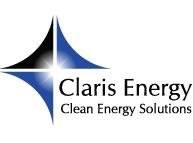 Regardless of the fact that investors and construction companies are still waiting for the extension of EPAct 179D, green building tax deduction opportunities still exist. There are several different possibilities that investors should explore, in case they need financial assistance for the execution of sustainable residential projects.
Regardless of the fact that investors and construction companies are still waiting for the extension of EPAct 179D, green building tax deduction opportunities still exist. There are several different possibilities that investors should explore, in case they need financial assistance for the execution of sustainable residential projects.
US Federal Programs
Such programs are mainly targeting residential property owners and there’s no information about expiration in the near future.
The US Federal Government provides a green building tax deduction for the execution of solar water heating, photovoltaic installations and solar space heating installations. The amount is 100 percent of the subsidy.
More information about US federal programs and the qualification criteria can be found at the Database of State Incentives for Renewables and Efficiency (DSIRE) website.
Federal Residential Renewable Energy Tax Credit
The federal residential green building tax deduction is available for the execution of projects involving solar water heating systems, wind energy generation, fuel cell systems, the use of geothermal heat pumps, fuel cells using renewable fuels and the use of other solar electric technologies.
This federal residential renewable energy tax credit is going to be available for projects, home improvements and construction initiatives executed until December 31, 2016.
The personal income tax credit totals 30 percent of the installation’s cost. There’s no upper limit. If there’s excess credit as a result of the incentive, the amount can be carried over to the coming year. There still is no information if the unused tax credit will be carried forward after the end of the program.
In order to qualify for the green building tax deduction, an investor must execute the project on a building that he or she currently occupies. The incentive is also available for projects involving vacation homes. Energy efficiency projects that involve rental property do not qualify for the federal tax incentive.
The types of expenditure covered by the tax incentive include on-site preparation labor cost, piping, wiring and system assembly.
More information about the federal residential renewable energy tax incentive is available at the DSIRE website.
Federal Mortgages for Green Building Projects
One final option is available for homeowners and investors interested in the execution of energy efficiency projects. The federal mortgages are available for passive solar space heating systems, solar water heating installations, photovoltaic systems and day lighting.
The energy efficiency mortgage can be taken to finance the execution of such projects or to purchase a new energy efficient home.
These loans are provided with the support of the US Federal Government and they are insured through Federal Housing Authority or Veteran Affairs. As a result, even individuals that cannot qualify for a traditional loan will be eligible for funding.
The amount of the energy efficiency mortgage can add up to 100 percent of the project’s cost. The mortgage limits will vary by county and state. There are some restrictions – the mortgage for such projects has to be the lesser of five percent of the property’s value or 115 percent of the median price of a single-family dwelling in the area. More information about the terms and conditions is available at the US Department of Housing and Urban Development website.
Homeowners and investors should also keep in mind that there could be state or local initiatives for the execution of energy efficiency projects. Going through the possibilities, comparing the terms and conditions and doing calculations in advance will help for the selection of the most attractive financial stimulus for green project execution.
Steve Nanos
Latest posts by Steve Nanos (see all)
- LED Lighting – A Great EPAct 179D Qualification Possibility - February 3, 2015
- 45L Credit Requirements for Begun Constructions - January 29, 2015
- Can Section 179D Incentives Help Businesses Save a Lot of Money? - January 27, 2015

 609.275.8484
609.275.8484